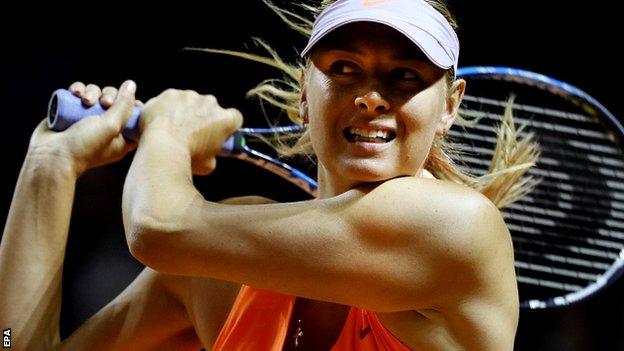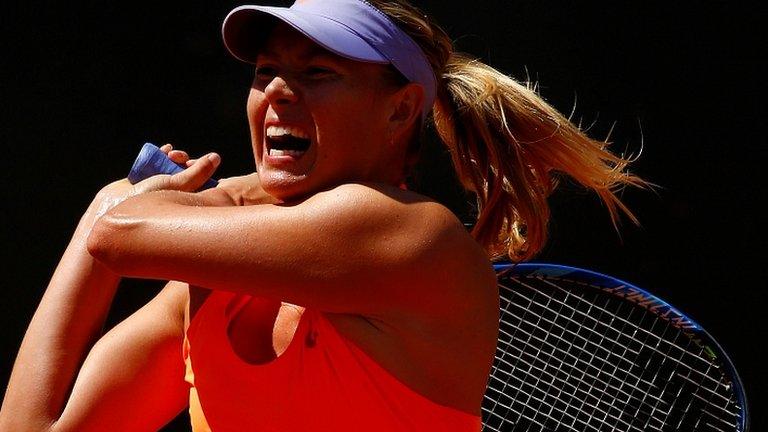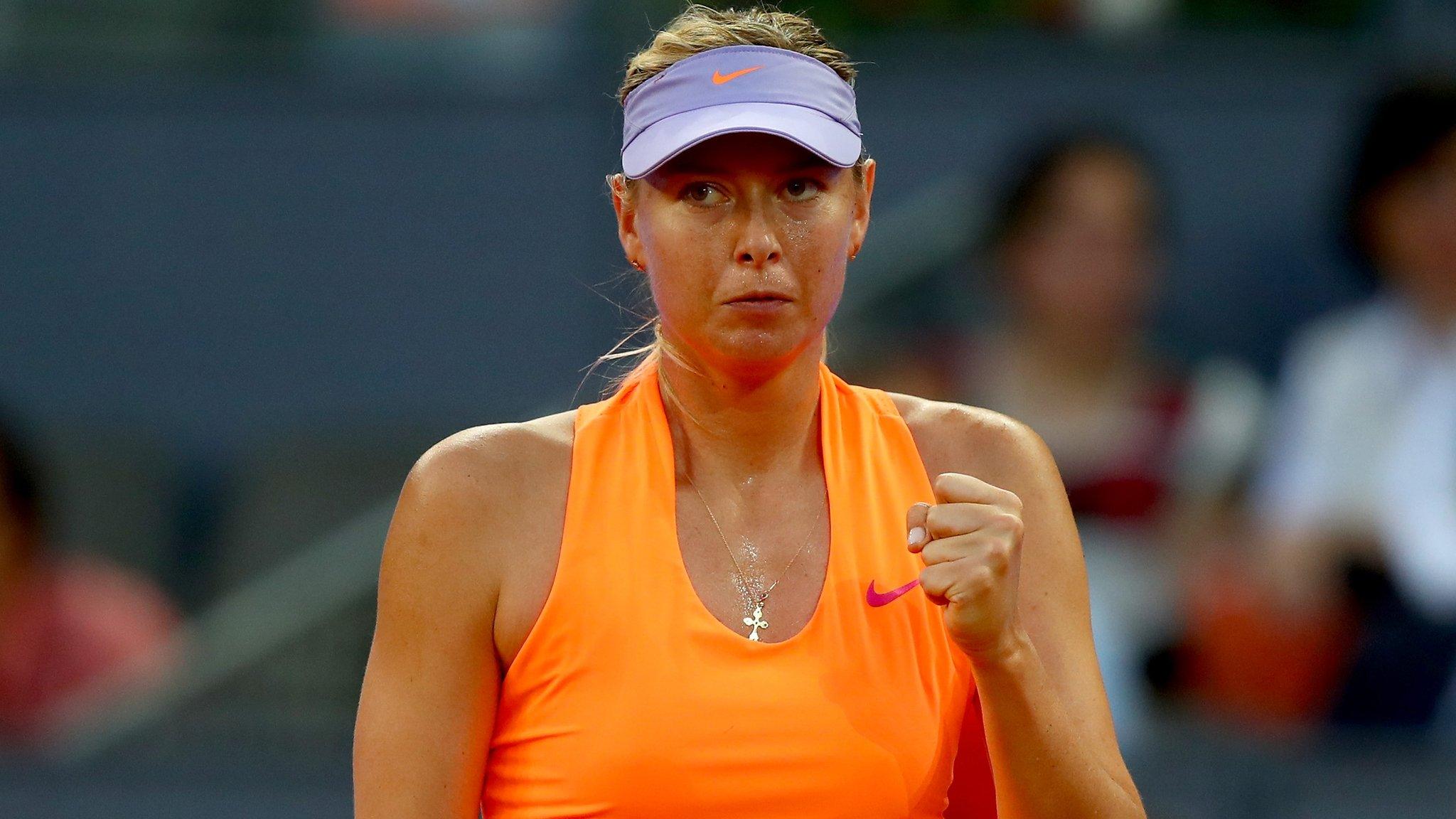Maria Sharapova: French Open decides against giving former champion a wildcard
- Published

Sharapova is playing at the Italian Open in Rome this week
Maria Sharapova will miss the French Open after tournament officials decided not to give the two-time champion a wildcard.
The Russian, 30, was ranked too low to gain direct entry as she continues her return from a 15-month drugs ban.
"There can be a wildcard for the return from injuries - there cannot be a wildcard for the return from doping," French Tennis Federation (FFT) chief Bernard Giudicelli Ferrandini said.
The French Open begins on 28 May.
Sharapova had been hoping to receive a wildcard either into the main draw or the qualifying tournament.
"I'm very sorry for Maria, very sorry for her fans," added Giudicelli Ferrandini.
"They might be very disappointed, she might be very disappointed, but it's my responsibility, my mission, to protect the high standards of the game played without any doubt on the result."
Shortly after learning of her Roland Garros snub, Sharapova withdrew injured from her second-round Italian Open match against Mirjana Lucic-Baroni.
Early Rome exit ends Wimbledon main-draw hopes
Sharapova returned to action without a ranking last month and has since risen to 211 in the world after receiving wildcards in Stuttgart, Madrid and Rome.
That will be enough to at least earn a qualifying spot at Wimbledon next month.
Sharapova needed to reach the semi-finals of the Italian Open to qualify for Wimbledon's main draw but retired in the second round on Tuesday when leading Lucic-Baroni 4-6 6-3 2-1.
"I apologise for having to withdraw from my match with a left thigh injury," she said. "I will be getting all the necessary examinations to make sure it is not serious."
Sharapova will now have to wait until 20 June to discover whether she is among the wildcards at the All England Club.
The former world number one has not played a Grand Slam since she tested positive for heart disease drug meldonium at the 2016 Australian Open.
That brought an initial two-year ban, later reduced to 15 months after the Court of Arbitration for Sport found she was not an "intentional doper".
Analysis
BBC tennis correspondent Russell Fuller
The ongoing fight against doping is more important than the line-up for the French Open - that was the message from the French Federation's president.
It is a brave and principled decision, which will upset some fans and broadcasters. Ratings may suffer, but Roland Garros will ultimately be stronger for it.
How could the public take the sport's anti-doping message seriously if one of the Grand Slams had invited a player who was not ranked high enough because of time served for a doping offence?
Sharapova has, in contrast, earned her place in qualifying for Wimbledon, even though injury has now deprived her of the chance to play herself into the main draw.
And assuming she is fit, she is likely to want to play at least two warm-up events. The Lawn Tennis Association has already offered her a wildcard into the WTA event in Birmingham. If Sharapova also wants to play the week before, she has Nottingham and the Dutch town of Rosmalen to choose between.
- Published15 May 2017

- Published9 May 2017
